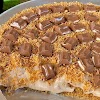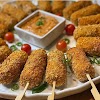The sacred month of Ramadan is an uncommon month of the year for Muslims all throughout the planet. This is when Muslims associate all the more profoundly with their religion, ponder themselves, and reward their local area.
There are various types of Muslims and various practices inside the religion. With regards to Ramadan, fasting is a custom common by virtually all.
Fasting during Ramadan includes not eating food or drinking water among dawn and dusk for the whole month.
Ramadan gives the award of self-development and the chance to get familiar with our religion and ourselves. These otherworldly rewards require difficult work and devotion to imploring, a guarantee to noble cause, and determination when fasting.
Muslims follow a schedule dependent on the movement of the moon. Consistently, Ramadan falls 15 days sooner than the last. Contingent upon where you reside on the planet, the days might be short or long.
The month frequently starts with a hopeful energy, and experts may set numerous otherworldly objectives. Nonetheless, it very well may be not difficult to flounder as you attempt to keep up your wellbeing while at the same time fasting and adjusting your customary everyday obligations.
Here are some reasonable tips and deceives to help a protected, fruitful quick during Ramadan.
There are just two freedoms to eat during Ramadan: in the early morning before dawn (Suhoor) and after dusk in the evening (Iftar).
The morning dinner can be not difficult to skip, as it's hard to have a craving so promptly in the first part of the day.
Notwithstanding, Nazima Qureshi, RD, MPH and creator of The Healthy Ramadan Guide, clarifies that it's critical that you don't avoid this dinner. The food decisions you make will influence your energy for the duration of the day.
"A great deal of times individuals will go to basic carbs for the morning supper," says Qureshi. "Be that as it may, straightforward starches won't give long haul energy."
All things considered, she suggests eating entire grains combined with solid fats and proteins just as products of the soil. These incorporate dishes, for example,
flavorful oats
power hotcakes
strawberry-chocolate short-term oats
You can discover plans for these dishes at The Healthy Muslim.
Drinking water is fundamentally significant and has numerous medical advantages.
Not drinking sufficient water can bring about poor moodTrusted Source and expanded tirednessTrusted Source. This can influence energy levels and memoryTrusted Source.
Keeping up water admission can likewise help oversee persistent ailments and has a job in forestalling and treating cerebral pains, headaches, kidney stonesTrusted Source, and clogging, just as keeping up blood pressureTrusted Source.
There's additionally some proof that remaining hydrated brings down craving. This is particularly helpful when you can't eat for the whole day!
Be that as it may, how would you remain hydrated when you can't drink water among dawn and dusk?
Utilize the time before dawn and after nightfall as a chance to rehydrate and meet the suggested water consumption. Keep a water bottle close for the duration of the evening and drink at whatever point conceivable.
It can likewise be useful to focus on the food varieties you're eating. While desserts during Ramadan can be extremely enticing, attempt to pick food varieties with high water content all things being equal.
Qureshi suggests coordinating water-filled products of the soil into your evening supper, for example,
strawberries
On the off chance that Ramadan falls during a hotter season, dress cool and attempt to keep away from direct sun.
HEALTHLINE NEWSLETTER
Get day by day sustenance direction, made for you
We'll send you proof put together direction from specialists with respect to nourishment to assist you with turning into your best self.
Conventional food sources are vital for Muslims, particularly during Ramadan.
I love the conventional food sources offered at social events during extraordinary strict occasions like Eid and Navroz. Be that as it may, my family and I generally attempt to be aware of parts, as our social food sources can be sleek and substantial. Despite the fact that it tastes astounding, I feel depleted and tired the following day on the off chance that I try too hard.
Ramadan is certifiably not a one-day occasion, it's a month-long occasion.
While breaking the quick is a festival, eating conventional food sources each evening may not be the best thought. Following an entire day of not eating and feeling hungry, indulging is additionally normal. This may prompt morning sluggishness and weight acquire over the course of the month.
Qureshi suggests breaking the quick by eating a date, some natural product, and drinking some water. Now, she suggests stopping and finishing the evening petition prior to jumping into any food.
"The regular sugars from the natural product will permit your body to enlist that you have had food. You will not feel like you're starving, and you're less inclined to gorge," Qureshi clarifies.
For the evening supper, Qureshi suggests utilizing your plate as a guide. Attempt to convey your food as follows:
Vegetables or serving of mixed greens: Half a plate.
Sugars: Quarter of a plate. On the off chance that you do decide to eat refined sugars, be careful to downplay it.
Protein: Quarter of a plate.
Having a persistent ailment doesn't imply that you're not ready to quick. It implies that it's fundamental for prepare and make the vital changes, however.
Wasem Alsabbagh, BScPharm, PhD, an authorized clinical drug specialist and associate teacher at the University of Waterloo, clarifies that most prescriptions can and ought to be proceeded while fasting.
Be that as it may, the time you take them ought to be acclimated to fit the fasting timetable of the evening feast and morning supper.
"In the event that fasting deteriorates the ailment, even in the wake of changing the meds' timetable, patients ought not quick," Alsabaggh says.
This incorporates basic diseases like those requiring hospitalization, diabetes that requires reliable stock of food and drink to oversee blood sugars, and certain malignant growths.
Individuals with regular ailments, for example, diabetes and hypertension can in any case quick as long as their conditions are steady and controlled. Notwithstanding, they'll need to intently screen blood sugars and circulatory strain, guarantee sufficient hydration, and change the circumstance of their drugs.
Most importantly, Alsabaggh energizes an open and open relationship with your medical care proficient to guarantee that it's safe for you to quick. You ought to likewise talk about changing drugs.
In the event that fasting doesn't line up with your wellbeing during Ramadan, not to stress. Ramadan can in any case be regarded by making up fasting days after the fact or through cause.
After Ramadan is finished, it very well may be hard to continue normal dietary patterns. Your body may have gotten familiar with not eating for extensive stretches of time during the day and having a heavier feast in the evening.
In the event that you wind up in the present circumstance, Qureshi suggests evaluating irregular fasting and guaranteeing that you hydrate for the duration of the day.
On the off chance that you wind up inclining towards eating, consider setting reliable eating times all things being equal.
Ramadan is a period for festivity and profound development. It's likewise a difficult time as Muslims embrace the preliminary of fasting for the month.
Utilize these tips to remain empowered while fasting during the day and getting a charge out of social food varieties when the sun goes down.










0 Comments